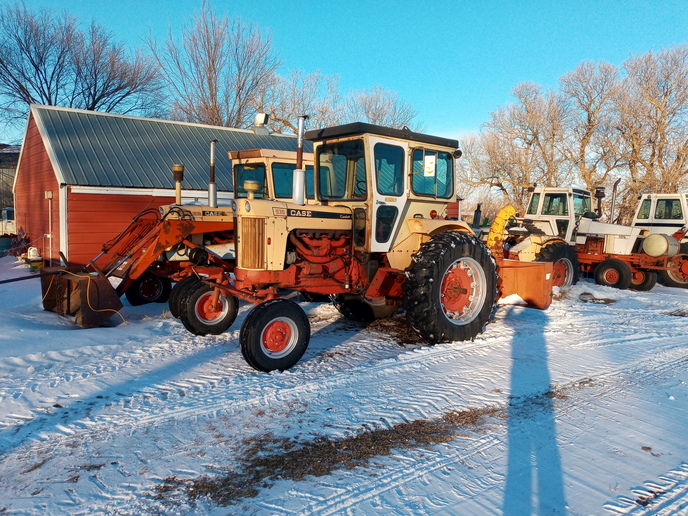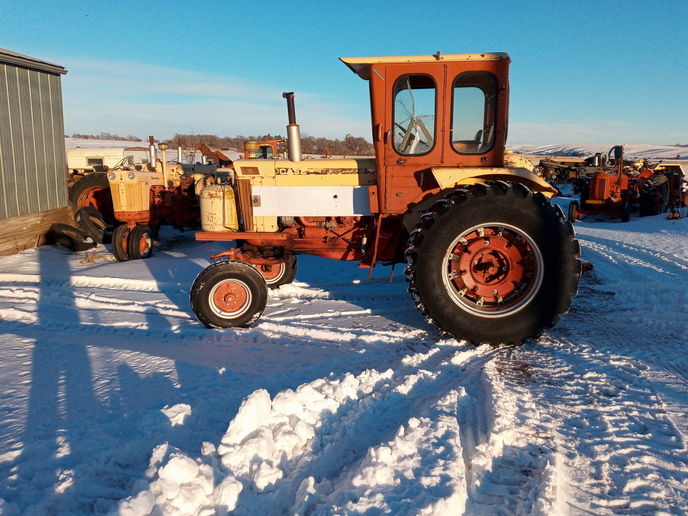You should upgrade or use an alternative browser.
- Thread starter Charlie M
- Start date
Husker 50 8n
Member
Steve@Advance
Well-known Member
In the 70-80's when gas was high, propane was cheaper to operate, plus the longer engine life. Took a while for the gov to get around to applying road taxes too, so it was a very popular conversion on cars and trucks!
It does not make as much power as gasoline, so consumption will be a little higher, power will be a little less. I drove some propane converted cars and trucks, I couldn't tell any power loss, they ran very well.
One of the biggest markets now is for indoor equipment, forklifts, floor sweepers, etc. Much less smell and emissions.
shaun wallace
Well-known Member
Geo-TH,In
Well-known Member
Neighbor would hide in his corn crib with a double barrel shotgun.
He would let off a round to signal my Dad to call the cops.
I wonder if LP was the farmer's solution to stealing gas?
Tramway Guy
Well-known Member
rlp in Co.
Well-known Member
My friend was telling me about running diesels on both diesel and propane and they put out more power than just diesel or propane alone.
Chuckles46
Member
Russ from MN
Well-known Member
- Location
- Bemidji MN
coonie minnie
Well-known Member
Bob M
Well-known Member
However in cold weather the propane tractor is more difficult to start - involves operating gas and vapor withdrawal valves in proper order and at the proper times as the engine warms up.
Finally you DON'T want to let an LPG tractor run out of fuel in the field (you can't simply dump in a couple gallons from a jerry can, fire it back up then run it back to the barn!)
----
Somewhat related, the school district I occasionally drive bus for is phasing out diesel and gasoline engines in favor of liquid injected propane buses. Fuel mileage differences are significant: A gas bus will deliver 5 - 6 mpg on a 100 mile trip; the LPG only 3 - 4 mpg. (The older diesels are good for 7 - 8 mpg...)
Also the LPG buses are slower to get started - hot or cold. After turning the key there's about a 1 minute wait while the fuel system purges/pumps and the computer actually cranks the engine.
However the LPG buses have plenty of power, and the exhaust smell is much more tolerable.
casecollectorsc
Well-known Member
- Location
- E central SD.


casecollectorsc
Well-known Member
- Location
- E central SD.
Russ from MN
Well-known Member
- Location
- Bemidji MN
shaun wallace
Well-known Member
Similar threads
- Replies
- 30
- Views
- 2K
We sell tractor parts! We have the parts you need to repair your tractor - the right parts. Our low prices and years of research make us your best choice when you need parts. Shop Online Today.
Copyright © 1997-2024 Yesterday's Tractor Co.
All Rights Reserved. Reproduction of any part of this website, including design and content, without written permission is strictly prohibited. Trade Marks and Trade Names contained and used in this Website are those of others, and are used in this Website in a descriptive sense to refer to the products of others. Use of this Web site constitutes acceptance of our User Agreement and Privacy Policy TRADEMARK DISCLAIMER: Tradenames and Trademarks referred to within Yesterday's Tractor Co. products and within the Yesterday's Tractor Co. websites are the property of their respective trademark holders. None of these trademark holders are affiliated with Yesterday's Tractor Co., our products, or our website nor are we sponsored by them. John Deere and its logos are the registered trademarks of the John Deere Corporation. Agco, Agco Allis, White, Massey Ferguson and their logos are the registered trademarks of AGCO Corporation. Case, Case-IH, Farmall, International Harvester, New Holland and their logos are registered trademarks of CNH Global N.V.
Yesterday's Tractors - Antique Tractor Headquarters
Website Accessibility Policy

